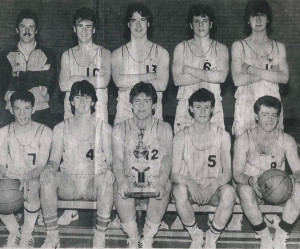You Don’t Need Motivation—You Need a Sales Process
You Don’t Need Motivation—You Need a Sales Process
If you’re waiting to feel motivated before making your next call, sending that follow-up, or finishing off your pipeline report, here’s the uncomfortable truth: You’re already on the back foot.
It’s like waiting for someone else to make you happy.
Motivation is unreliable. It comes and goes. It rides the highs and disappears during the lows. Building a successful career in sales isn’t about being constantly fired up — it’s about showing up with discipline, regardless of how you feel.
Whether you’re an SDR, telesales, or field sales, the difference between top performers and everyone else comes down to one word: process.
Why Motivation Fails You
There are days when the pipeline looks weak, your last three deals ghosted you, and the pressure is building. On those days, motivation is nowhere to be found. You don’t need a pep talk. You need a plan. Top performers don’t rely on motivation to get going. They rely on structure. They follow a repeatable routine that removes decision fatigue and keeps them consistent when others fall away.
What Does “Having a Process” Actually Mean?
It means:
– You don’t start your day wondering what to do.
– You don’t check your inbox before reviewing your priority tasks.
– You don’t only follow up when you feel like it.
– You don’t prospect in a panic when your pipeline’s empty.
You execute the basics, with intent, every single day.
That’s what separates professionals from part-timers.
The Sales Process Pyramid
Let’s break it down:
- Daily Rhythm
Set time blocks for key activities: prospecting, follow-ups, pipeline reviews, learning. - Structured Outreach
Use a consistent system for cold outreach and follow-up. Templates. Sequences. Cadence. - Consistent Discovery
Have a discovery framework you stick to — questions that uncover value, urgency, budget, decision-making. - Post-Call Rituals
Log the notes. Update the CRM. Book the next step. Don’t leave loose ends. - Weekly Review
Check what’s working, what’s stuck, and what needs to shift. Adjust.
This is the invisible scaffolding behind consistent sales performance.
Why Salespeople Resist Process
Because process feels boring. It’s not sexy. It doesn’t give the dopamine hit that closing a deal does. But it’s what leads to the close. And skipping it is why so many salespeople have unpredictable results. (I have plenty of personal experience with this.)
No process = no repeatability.
With process, you get:
– Momentum
– Confidence
– Predictability
– Less burnout
Without it, you’re just winging it. 
What Process Looks Like in the Real World
– The SDR who books five meetings a week because they stick to their call block even on bad days.
– The field sales rep who preps every visit using the same checklist.
– The telesales pro who ends each call by confirming next steps, every single time.
These aren’t heroic moves. They’re small, disciplined actions done over and over again.
Replace Motivation with This Instead
- Triggers – Design your environment so you don’t need willpower. CRM homepage = call list. Calendar alert = prospecting block. Task management – fill your diary up for the coming weeks.
- Checklists – Never trust memory. Use checklists for discovery, proposal prep, closing.
- Accountability – Share your process with your manager or team. Make it visible. Ask for feedback.
- Review loops – Block time weekly to assess: What worked? What needs refinement?
Process evolves. But only if you track it. Ultimately if you’re relying on motivation to sell, you’re going to find yourself in trouble. Replace it with a process that supports you when your energy dips, your confidence wobbles, or your targets feel far away. Success doesn’t come from waiting to feel ready. It comes from working the system that gets results.
Thanks for reading.
I have recorded 3 episodes on The Shift Control Podcast on the importance of process, aimed at business leaders and owners and frontline sales. Available on the following platforms:
Spotify
iTunes
Soundcloud







